This year’s theme set down by the UN for International Women’s Day is Women in Leadership: Achieving an equal future in a COVID-19 world. Celebrating the tremendous efforts by women in shaping a more equal future for everybody, we ask seven women from around the world who are blazing a trail in the creative industries ‘What does leadership in art look like in 2021?’
Anoosha Syed is an award-winning illustrator and character designer for animation based in Toronto. She has illustrated over twenty picture books and her past clients include Google, Netflix and Disney. When she's not drawing, she creates educational videos on Youtube about the Illustration industry. Anoosha’s work can be found at anooshasyed.com
Duoduo is an illustrator, currently living in Hangzhou, China. She’s the founder and director at Yamamichi Design Studio, creating illustration artworks for various books and products. She has published her own illustrated book ”幸福悄悄来”,watercolor tutorial books “100堂水彩插画手绘实战课” and “金鱼绘”. See Duoduo’s work on Instagram @duoduoart
Hanxu Chen Graduate from Gobelins - School L’image, and currently lives in France where she works as an animator. Hanxu co-directed the short film ‘In Orbit’ which has been nominated and won at numerous international film awards. She was the animation director for Angry Birds Blast and has produced art for Clash Royale, AFK Arena and other games. See Hanxu’s work at hanxuchen.wixsite.com/cherry
Karla Ortiz is a multi award winning illustrator, concept and fine artist with over 10 years professional experience in film, gaming and publishing. Karla has held numerous exhibitions at home and abroad. She paints her days away with her cat Keedy Bady, and that's how she likes it. Discover her work at karlaortizart.com
Lois van Baarle is a digital artist based in Utrecht, the Netherlands. She has been drawing her whole life and has worked as a concept artist and character designer for clients such as LEGO, Guerrilla Games and Amazon. She has published two books: The Sketchbook of Loish and The Art of Loish. You can find her work at loish.net and on Instagram @loisvb
Rikki Burns has over 15 years’ experience as both an Art Director and Copywriter, across traditional and digital advertising. Despite this, amazingly she remains passionate about creativity, and its power to make real change, be it to a single person, a small business, a good organisation, or the whole world.
Believing strongly in giving back and paying it forward, she also runs AWARD School WA, volunteering as Social Media Manager for a children’s charity, and judging award shows both nationally and internationally. You can find her work all over the internet and connect with Rikki on her LinkedIn @Rikki Burns.
Sang Miao graduated from Xiamen University of Technology, majoring in Animation and a master’s degree in illustration from University of Brighton. She’s collaborated on various published illustration books. Her illustration book ‘Out, Out, Away From Here’ has been shortlisted in the BIBF Ananas International Illustration Exhibition 2019. This and her ‘The Immortal Jellyfish’ had Chinese versions published in 2020. Check Sang’s work out on Instagram @sangmiao0307
Does leadership influence your artistic work?
Duoduo: I didn’t think much about this question until I started an original design studio called Yamamichi with my friend last year. Starting from scratch, I deeply feel the importance of leadership to us creative workers, especially when it involves teamwork or collaboration across industries. Broader vision and good decision making often helps to carry a smooth completion of our projects.
Karla Ortiz: No, not at all! That would be so stressful. If I thought about my place in the industry, and where I wish to be, as I was painting, nothing would get done. My artistic work tends to be separate from my self worth, or my achievements as a person. This is done intentionally so I can keep my art as a place of joy, exploration, contemplation and development.
Hanxu Chen: In all my work, I don't feel I’ve spent much time in a leader’s position. In my opinion, leadership ability is more about communication, teamwork and organization ability. There are some commonalities between expression and communication. Leadership, indirectly, helps me to express what I want to convey more clearly when creating an artwork.
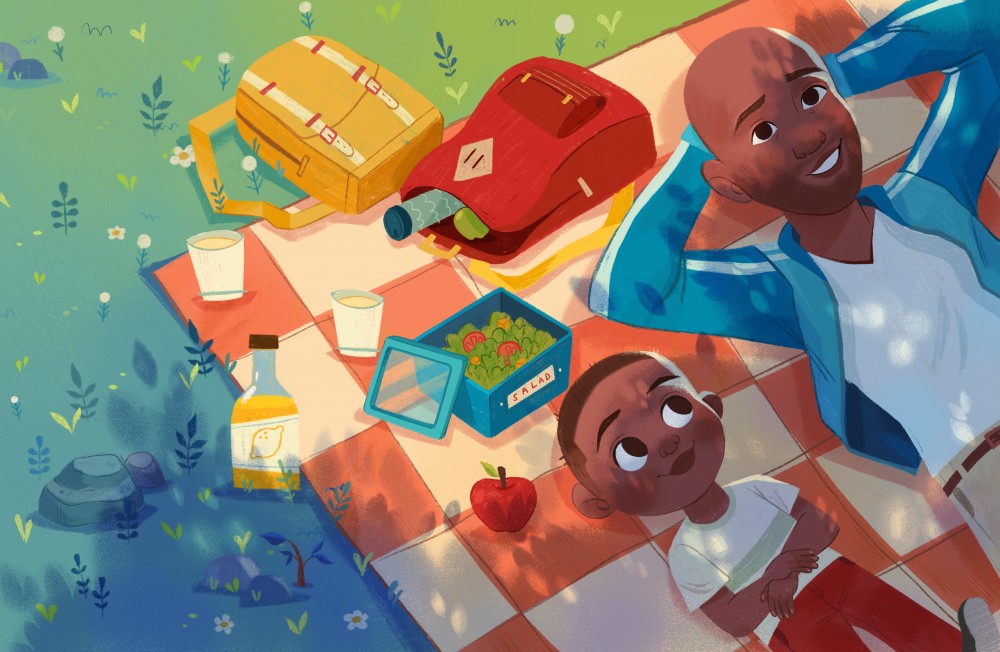
Artwork by Anoosha Syed
Who do you see as an influential leader in art today?
Anoosha Syed: Marie Lum, who is a Disney storyboard artist, is someone I'd definitely call a leader in art, and someone who I admire. She uplifts other creatives and provides resources for new artists. She is also a voice for disabled and neurodiverse voices within the art community, and works hard to raise awareness, and strives for representation, inclusion and accessibility within the animation industry.
Lois van Baarle: I've had the chance to meet a lot of women who are working hard to establish a leadership role in this community, in many different kinds of ways. I've worked with Guerrilla Games in the Netherlands where Angie Smets is the studio director, which I think is a big deal in an industry which is overwhelmingly male-dominated.
I've done workshops for different schools and organizations that put extra effort into including women in the game industry, like IGDA Finland where I was invited to teach a workshop by Natasha Trygg. I've seen artists who are active on social media, like Kiana Mai, make extra effort into boosting and helping out artists of color who are struggling to be a part of an industry that often excludes them.
When I started out, it was really difficult to find women who were role models for a successful career as an artist in the game and animation industry, but a lot has changed since then and hopefully it will keep changing.
Hanxu Chen: I don’t pay much attention to leading figures in the art world, and pay more attention to artwork itself. Probably because I live in France where everyone creates freely and there is no obvious creative leaders.
That being said, I do follow an organization called Women in Animation. They have their own website uniting female artists in the animation field, and carry out interviews and symposiums at animation festivals and on various online platforms.
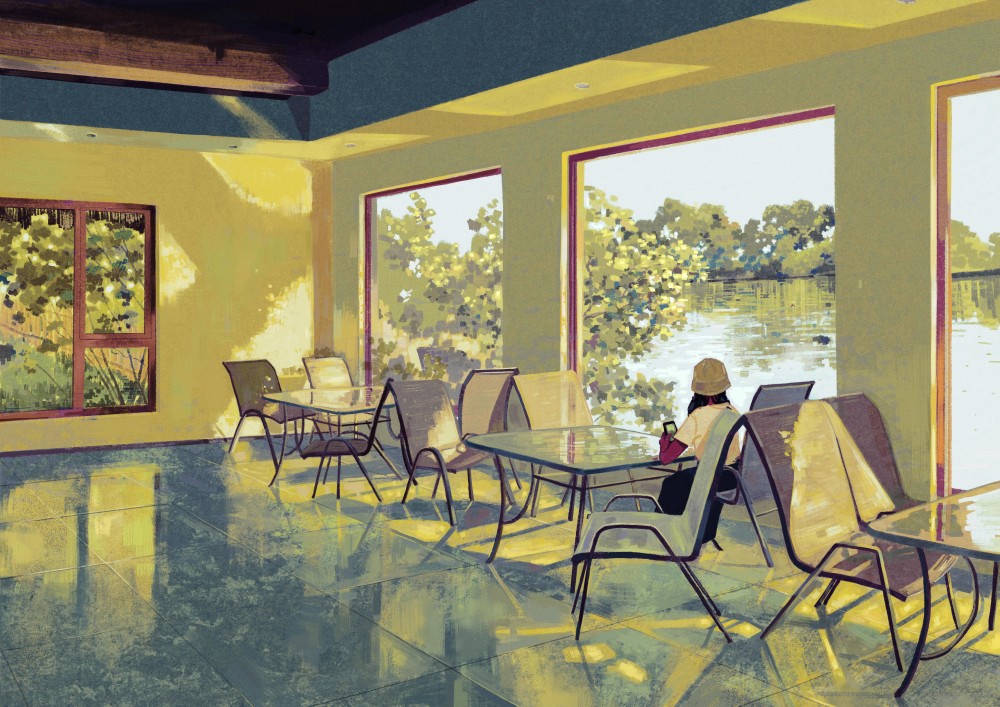
Artwork by Duoduo
What issues do you see as essential to tackle in 2021?
Karla Ortiz: If we’re talking solely about artistic industries, I think equity is very important. It’s understanding that regardless of talent not everyone has equal access to opportunities, and that marginalized communities are still massively under-represented in our industry, but especially in leadership roles. This is something that is getting better, but there is still much work to be done.
Another issue I would love to see tackled is better worker treatment in our industries. To ensure that companies are paying artists (especially newer ones) better salaries. Also that artists are properly credited for their work, and for deadlines to become more worker friendly, so artists can have better life/work balance.
Rikki Burns: Ageism in creative business. Although every company will boast about their expertise and experience, the reality is that expertise and experience are not as valuable to those companies as they once were. The constant push for efficiencies in business often results in the replacement one experienced person with two or three or four juniors.
It works on paper, but as everyone left struggles to fill that hole, their jobs become incrementally less efficient. Repeat. Repeat. Having said that, it’s incumbent on all of us to ensure we’re always learning in order to stay relevant and provide the best answers for our clients.
Artwork by Hanxu Chen
Do you feel comfortable calling yourself a leader, or do you feel this is a title others should bestow upon you?
Anoosha Syed: I think that it would be hard for me to call myself a leader; it's definitely a title that has to be earned and bestowed by others in the community. However, being a leader is something I'm aiming for; with my work in kidlit (children’s literature) and the illustration resources I create on Youtube I hope that I could be the kind of person that someone can look up to and ask for help and guidance.
Lois van Baarle: I wouldn't call myself a leader, but maybe more of a role model. This is mainly because a lot of young artists are entering the industry and they look to me as an example of how their career could look. As weird as it is, I'm ok with it because I love sharing knowledge and helping others out. I know what it feels like to want help and answers about becoming an artist!
Karla Ortiz: This is a tricky question to answer, because I genuinely feel it was a title given by others, as being a leader is not something I looked for… but it is certainly something I take very seriously. Many of my colleagues and I share the responsibility of influencing what our industry could be. While this is a task that falls on everyone in our industry, our visibility gives us the unique opportunity/responsibility to advocate for a more inclusive, generous, kinder, and overall better industry!
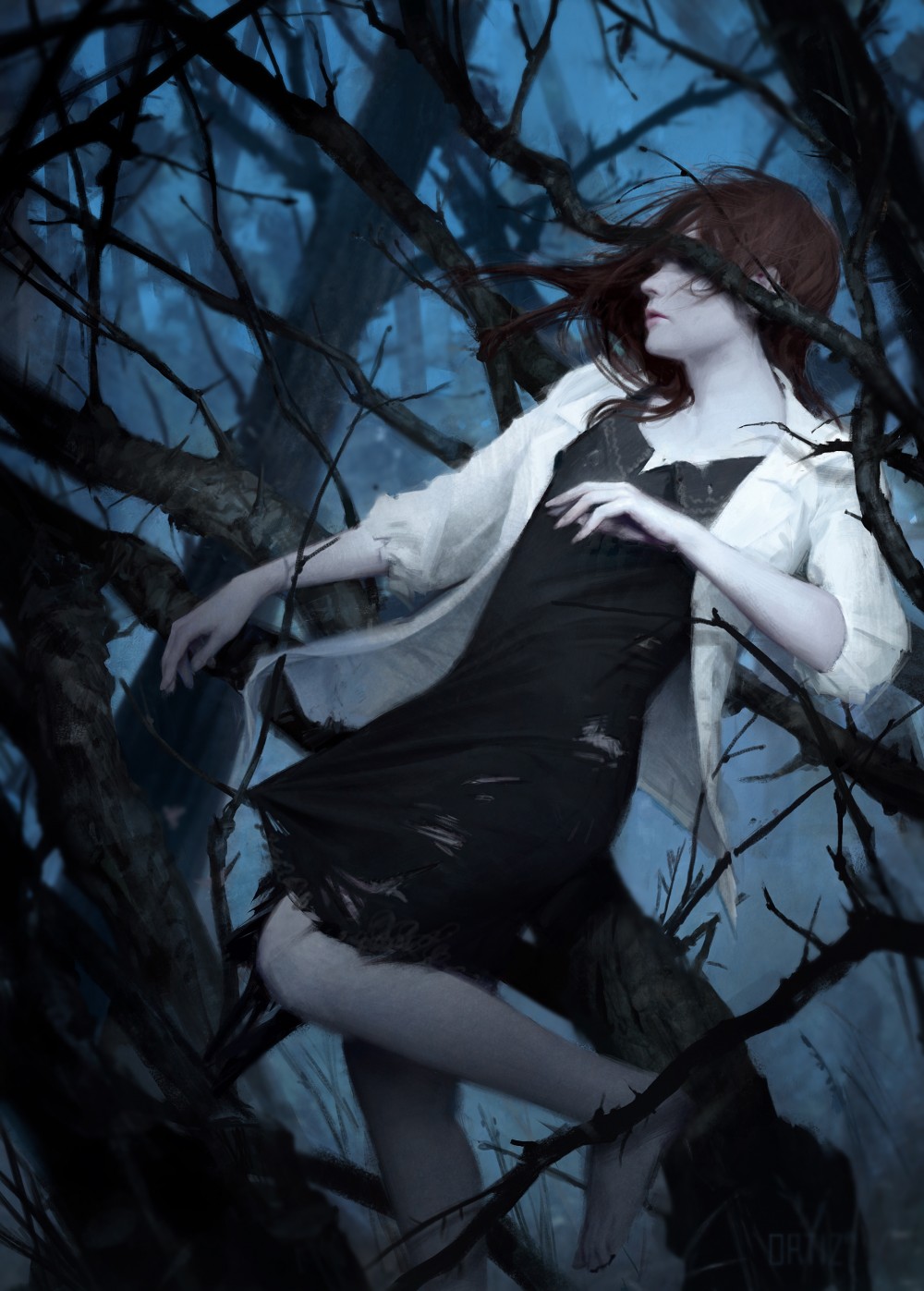
Artwork by Karla Ortiz
If you could leave a positive legacy behind you, what would it be?
Duoduo: As an illustrator, of course I want to create a lot of good artworks. As my artworks come from a positive attitude on life, I hope they enable other people to walk into better lives.
Karla Ortiz: For people to not be jerks, and treat each other with respect and kindness, regardless of their current station in life. I would also love it if I could help people realize that art, while difficult, is not just a fun visual puzzle to solve, but a way to communicate with others through a wonderful visual language.
Rikki Burns: I really believe that most jobs that come through advertising agencies can make a positive difference in some way. As the media makers, it’s our responsibility firstly to ensure we don’t make a negative impact, but secondly to think about what we can do to make a positive one.
This can be as “small” as ensuring diversity in the roster of illustrators you hire, to casting a differently abled child in a film even though the script doesn’t expressly require it, right through to creating huge campaigns that actively change the world. I want to instil this responsibility.
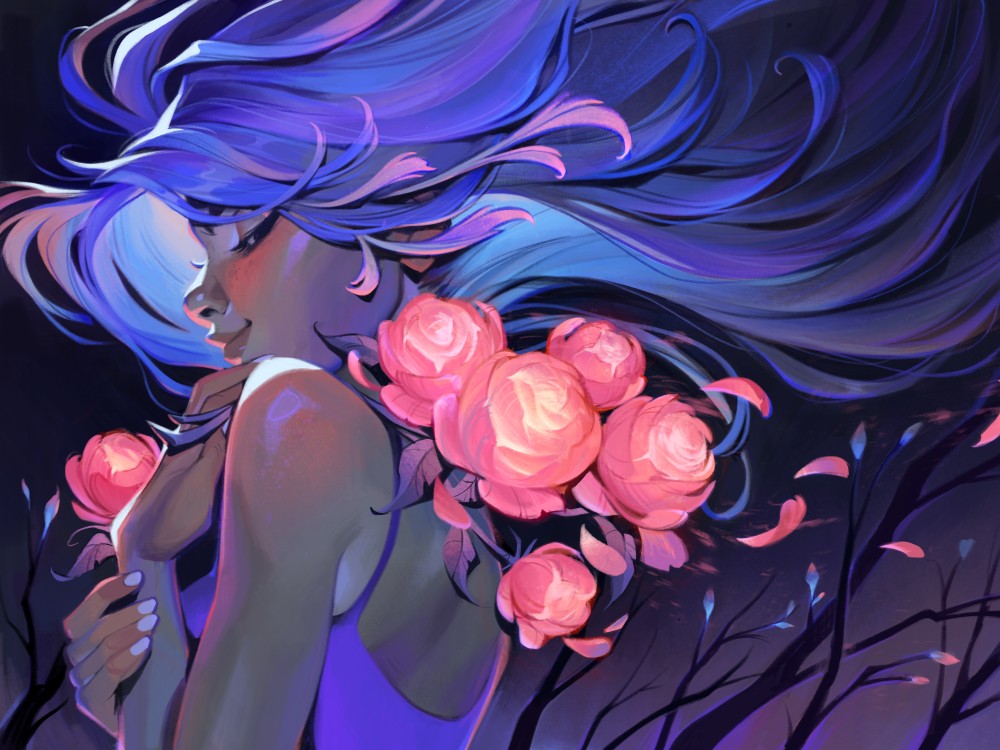
Artwork by Lois van Baarle
Is there a difference between being a leader and an influencer?
Karla Ortiz: I think a leader often advocates for others and empowers them, while an influencer often advocates for their brand. Both inspire, but only one nurtures. Nothing inherently wrong with either or, but at the end of the day the goals are a bit different.
Lois van Baarle: I guess there is a difference, and that would be intent. I picture a leader as someone that takes active steps and responsibilities to have a leading role, and an influencer as someone who leads by example.
Of course someone can also be both. But I do think that being a leader is a role someone consciously takes on and therefore it also holds more accountability.
What advice would you give to future leaders in the creative industries?
Anoosha Syed: I think that as you grow in your field and gain more experience and 'power', at a certain point you kind of forget where you started from. I feel this happening to me now, and kind of forgetting how hard everything is when you first start your creative career and the struggle of finding clients and work and even your own style. Because you might lose that perspective, I think it's important to regularly communicate with creatives who are starting out so you're more aware of the concerns in that area, and that way you can figure out how best you can solve them. Especially as time goes by, more hurdles show up in our industry that weren't around when you were younger so it's important to also be educated on that.
Hanxu Chen: Now days a lot of commercial art creation is driven by data analysis. Clients require art creation to be in line with readership, click rate, pay rate, etc. They consider big data the only measurement of art’s value, and that is just not gonna work. I don’t think truly excellent art and creativity can be deducted through some methodology set within a safe zone. Rather, we should aim to create something so touching and impactful that it can change or lead people for the better. If you think about it, a lot of successful artworks throughout history have this trait.
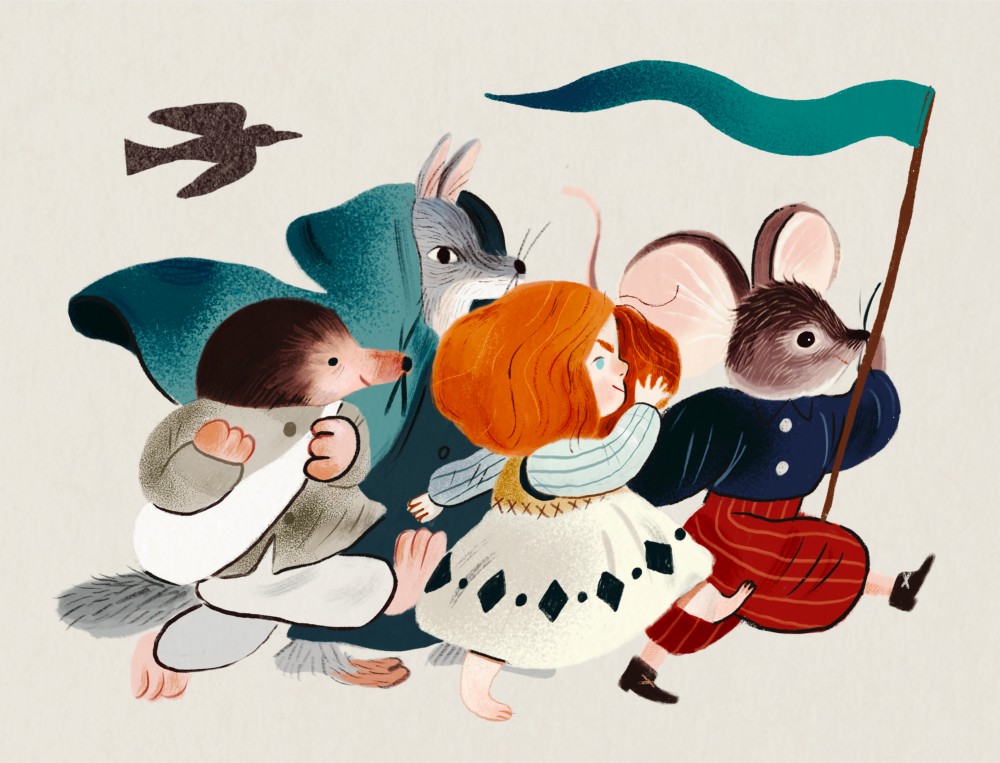
Artwork by Sang Miao
What is a barrier in art you hope future generations don’t have to deal with?
Anoosha Syed: Accessibility in art tools would be a big one; with a lot of art being created digitally now, it's great to see that more affordable digital options are coming up (Procreate being a big one) but at the end of the day, having a monitor, a graphics tablet, drawing software, an iPad etc, are all large expenses for new artists. I hope more affordable options are created in the future, so that everyone is able to have access to them.
Karla Ortiz: A lot of barriers we face in the art world, we face in our society as a whole. Personally I hope future generations live in an economically equal and sustainable world. I also hope they don’t have to deal with sexism, racism, homophobia, xenophobia, or any of the prejudices or bigotry we face as a society today.
Rikki Burns: If you put all the headshots of past Aussie advertising Creative Directors into a transparent layered file, the result would be a confident looking whiteish dude with manicured hair, a t-shirt, and an expensive jacket. For younger creatives to see different looking (and maybe more importantly, differently acting) people in that role is incredibly important. I still struggle to be myself and follow my own instincts when there’s such an ingrained expectation of how a Creative Director is “supposed” to act.
Imposter syndrome is common among artists, do you think it applies to leadership in a similar way?
Anoosha Syed: I don't think anyone is immune to imposter syndrome haha. I don't know if I'd call myself a leader, but even five years of being in this career I have no idea what I'm doing and if I even deserve to get the work I'm getting, especially when I see other artists work and compare it to my own.
Since I create educational videos, I also question myself on whether I'm actually in the right position to do this and if I have enough knowledge and experience; I always worry that I'm in way over my head and sharing info that doesn't help anyone!
Hanxu Chen: I had to search for the term ‘imposter syndrome’. It refers to the tendency to deny one’s own ability, and data has shown that it’s more common in women and successful people. Therefore, I reckon it definitely happens in the leadership realm. I once saw a documentary on director Hayao Miyazaki, and it surprised me that for someone with his status he still has to deal with this kind of stress and anxiety. I hope I’d believe in and approve of myself more.
Inclusiveness means a lot of different things to different people, what does it mean to you?
Anoosha Syed: Making sure that everyone is taken care of, and keeping in mind specific needs. That marginalized groups are represented and they have a voice; equity over equality.
Karla Ortiz: In practice and policy, it means giving people equal access to resources, regardless of where they come from, of who they are, and/or financial status. For me personally, it also means being welcoming to those who come from marginalized groups. It means being an advocate and elevating their voices, the same way people advocated and elevated me, a Latina from the lil’ island of Puerto Rico, when I was entering the industry. Their belief in me meant the world to me, and I want others to have someone in our industry who believes in them, too!
Sang Miao: In my early years, I wasn’t very tolerant to others, including their behavior, thinking and painting style. And, I was often full of hostility towards those people and things. I think tolerating and understanding others, in a sense, broadens our own horizons and allows us to see the world from a different perspective.